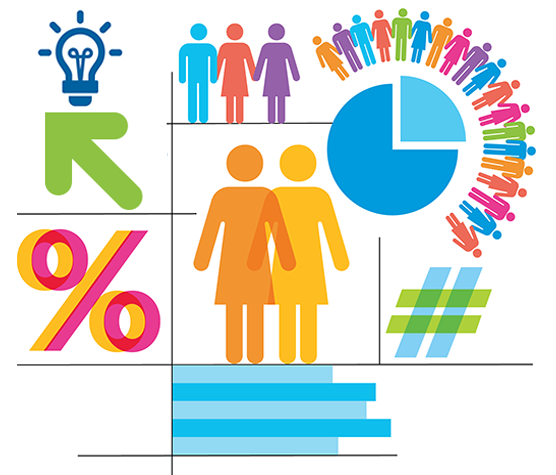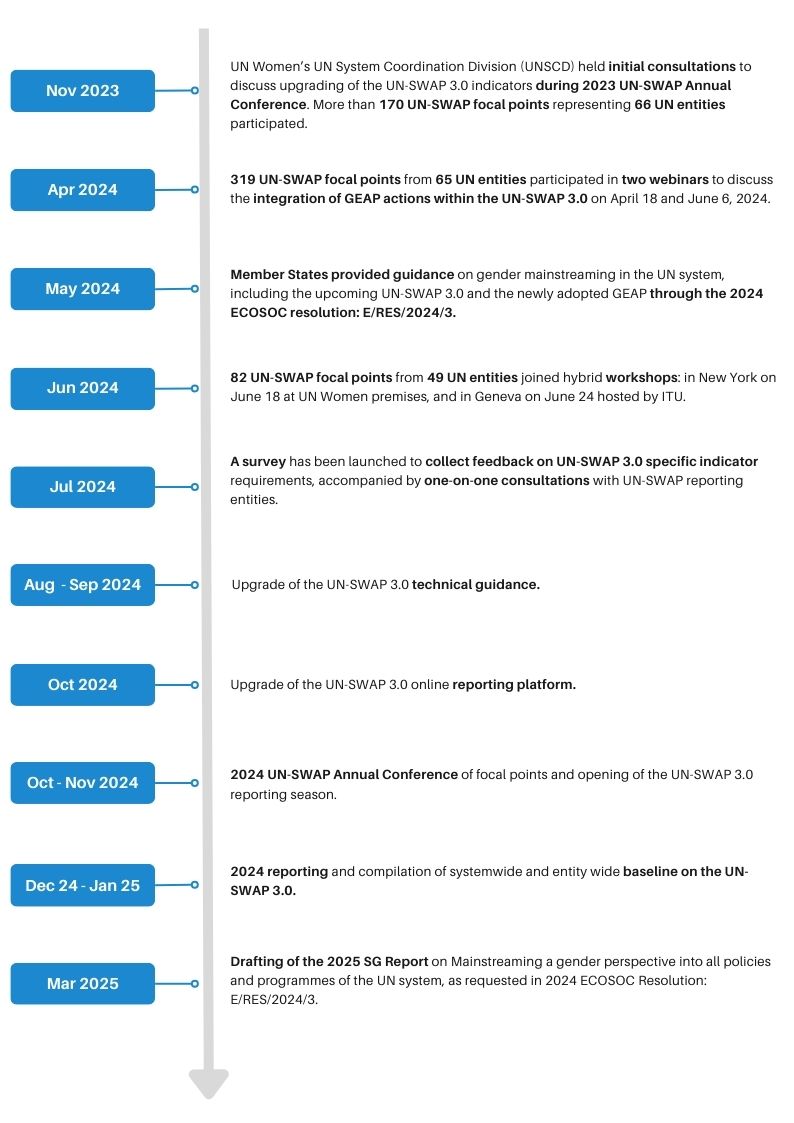Methodology for upgrading UN-SWAP 3.0 Performance Indicators
UN-SWAP 3.0 comprises changes which fall into three broad clusters:
1. Upgrading of performance Indicators where a significant majority of the UN system had met or exceeded requirements.
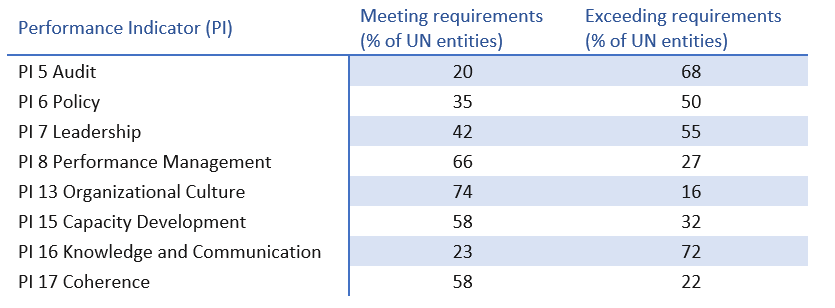
2. Upgrading of performance indicators focused on gender-related SDG results. The UN-SWAP 3.0 incorporates a stronger focus on joint initiatives and programmes. It will enhance the capacity to aggregate system-wide results as we approach the conclusion of the 2030 Agenda - a significant milestone in global sustainable development efforts.
3. Incorporation of performance indicators emanating from the Gender Equality Acceleration Plan (GEAP). The GEAP necessitates the upgrading of the UN-SWAP as the UN system-wide accountability framework on gender equality and the empowerment of women and girls. In the GEAP Pillar 2 on leadership it is stated:
- UN Women will lead the development of minimum standards for entity specific strategic plans as part of SWAP 3.0 deliberations.
- UN-SWAP 3.0 will incorporate directions given by the Gender Equality Acceleration Plan.
Accordingly, the UN-SWAP will incorporate the following changes emanating from the GEAP:
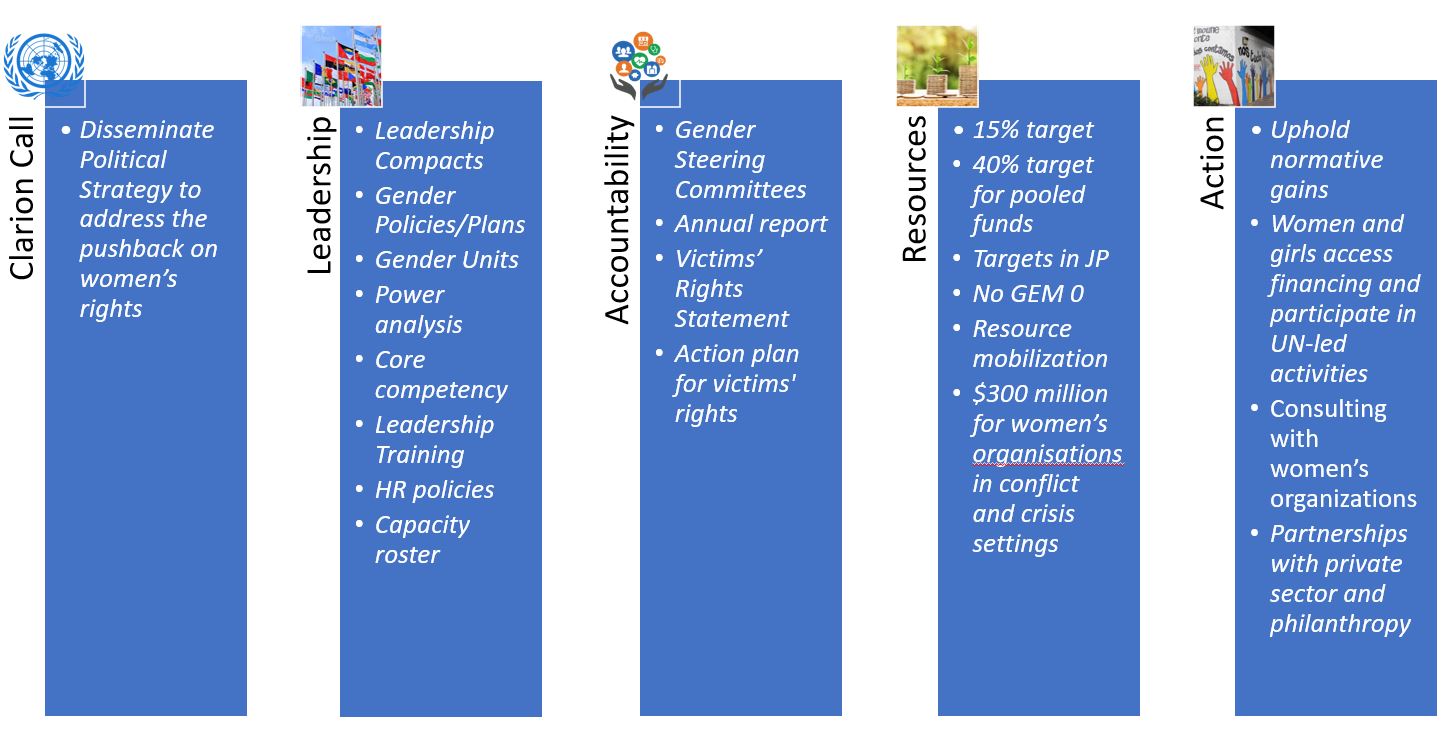
Enhanced features of the UN-SWAP 3.0
• Focus on measurable results: The updated framework aims to strengthen the measurement of results and impact in addition to processes. It involves incorporating relevant UN system-wide networks, such as UNRIAS, UNEG, and HR and Strategic Planning, for defining results in those indicators related to their mandate.
• Coherence: Ensuring coherence by taking into account the Beijing Declaration and Platform for Action, the 2030 Agenda for Sustainable Development, and the Gender Equality Acceleration Plan (GEAP), launched by the UN Secretary-General on March 8, 2024.
• Resource allocation: Addressing the chronic and systemic under-resourcing of gender initiatives that impede work across the UN system.
• Strengthened networks and enhanced partnerships: Emphasizing the foundational value of networks and coordination, including partnerships with women’s rights organizations and networks.
• Emerging issues: Examining the possibility of including emerging issues, such as the push-back against gender equality, safeguarding women's and girls' rights, promoting an intersectional approach to gender mainstreaming, and strengthening multi-stakeholder engagement.
• UN system capacity: Recognizing specific concerns about the dilution of focus and attention to gender equality due to the constant assignment of new portfolios to gender units and gender focal points, including other cross-cutting issues.
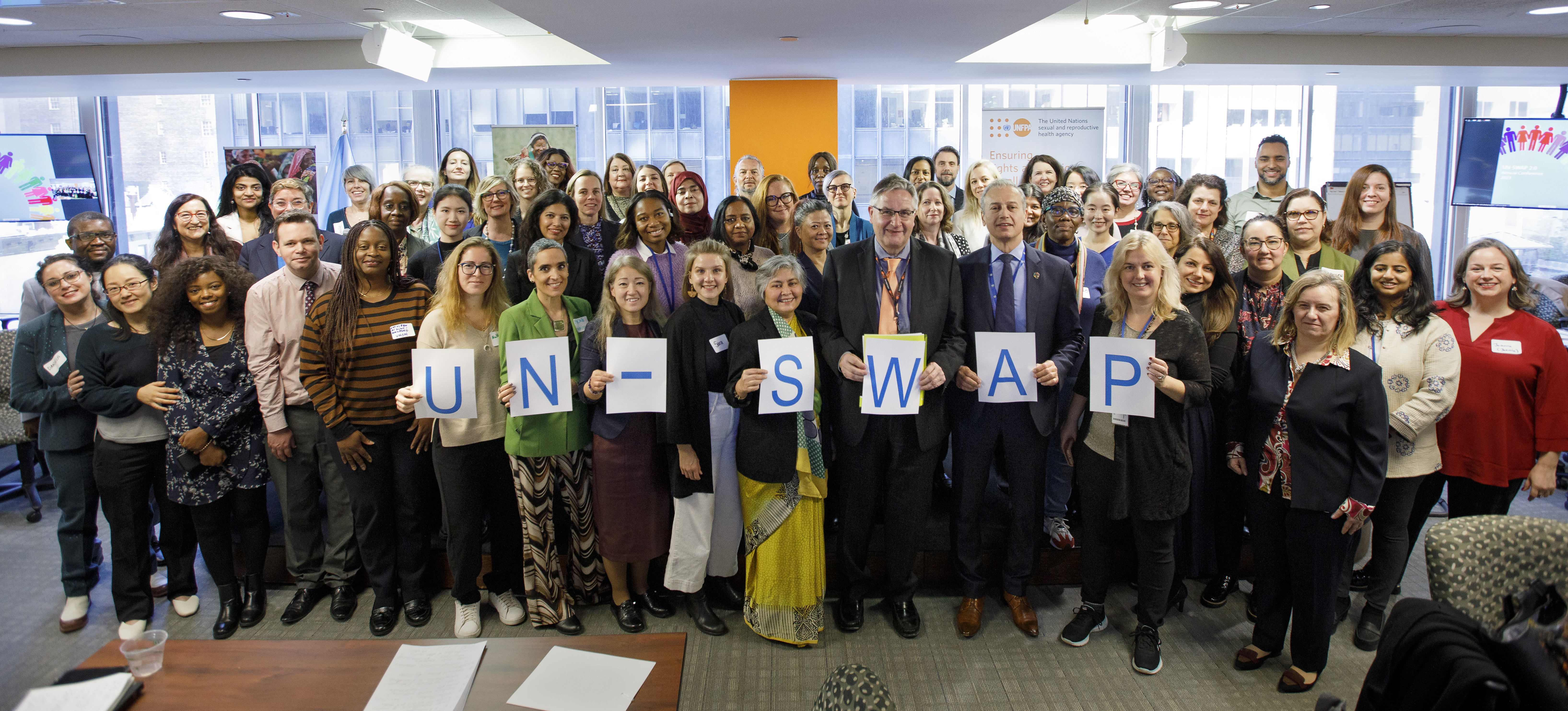
UN-SWAP Focal Points Annual Conference, November 2023
UN-SWAP 3.0 Performance Indicator Framework and Technical Guidance
The UN-SWAP 3.0 requires an entity’s self-assessment against 18 common system-wide performance indicators clustered into seven broad functional areas:
1. Results-based management
2. Oversight
3. Accountability
4. Financial resources
5. Institutional Capacity
6. Organizational Culture and Human Resources
7. Knowledge and communication and Coherence
For further details, please check this page.

